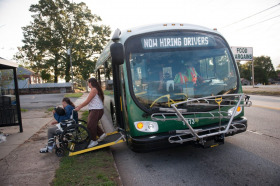- August 28th, 2023
- 0 Comments

According to data from the Robert Wood Johnson Foundation, transportation barriers disproportionately affecting individuals and families with low incomes, create access barriers to care and can be detrimental to long-term health.
Why it matters? While tele-health may have reduced transportation barriers for mental health, primary care and some other services, it's not accessible to all and can't substitute for in-person care for some medical needs, the Urban Institute researchers wrote in their report.
Key findings from non-profit Urban Institute study include:
- 21% of U.S. adults without access to a vehicle or public transit went without needed medical care last year, and individuals who lacked access to a vehicle but reported neighborhood access to public transportation services were less likely to skip needed care (9%).
- 5% of all U.S. adults reported forgoing healthcare due to transportation barriers.
- Black adults (8%), adults with low family incomes (14%), and adults with public health insurance (12%) were all more likely to forgo needed care due to difficulty finding transportation.
- Adults with a disability (17%) were more than three times as likely to report skipping care due to transportation concerns.
The research from Urban Institute concludes that reliable access to transportation, whether it be a vehicle or neighborhood public transit, is a social driver of health in the United States.
Research suggests that 10% of a person's health can be attributed to the physical environment, including transportation. The pandemic experience and heightened awareness of racial inequities are prompting some cities to rethink the mobility revolution to ensure there's more equitable access (as Axios' Joann Muller has written).
Source: Robert Wood Johnson Foundation













